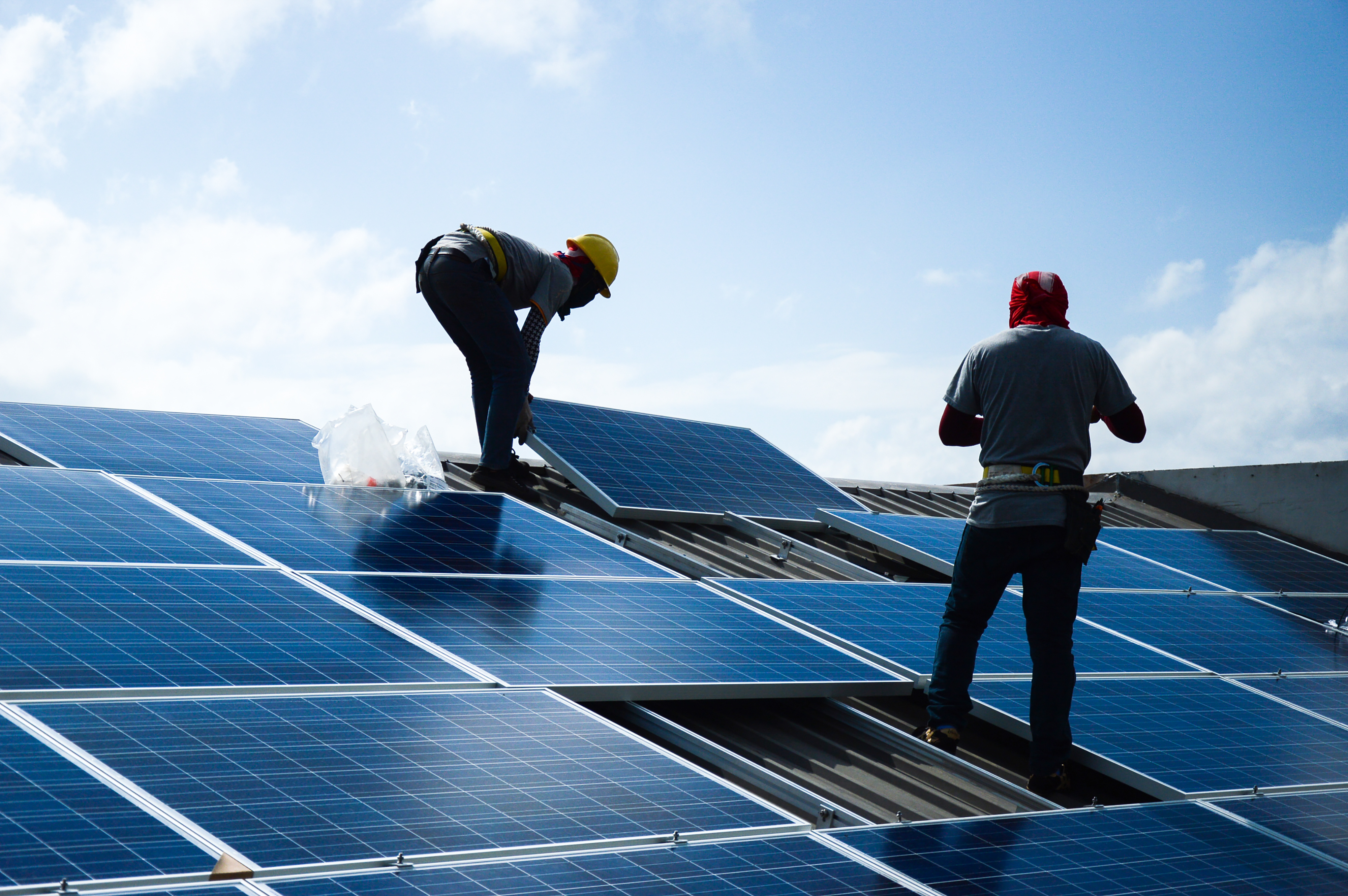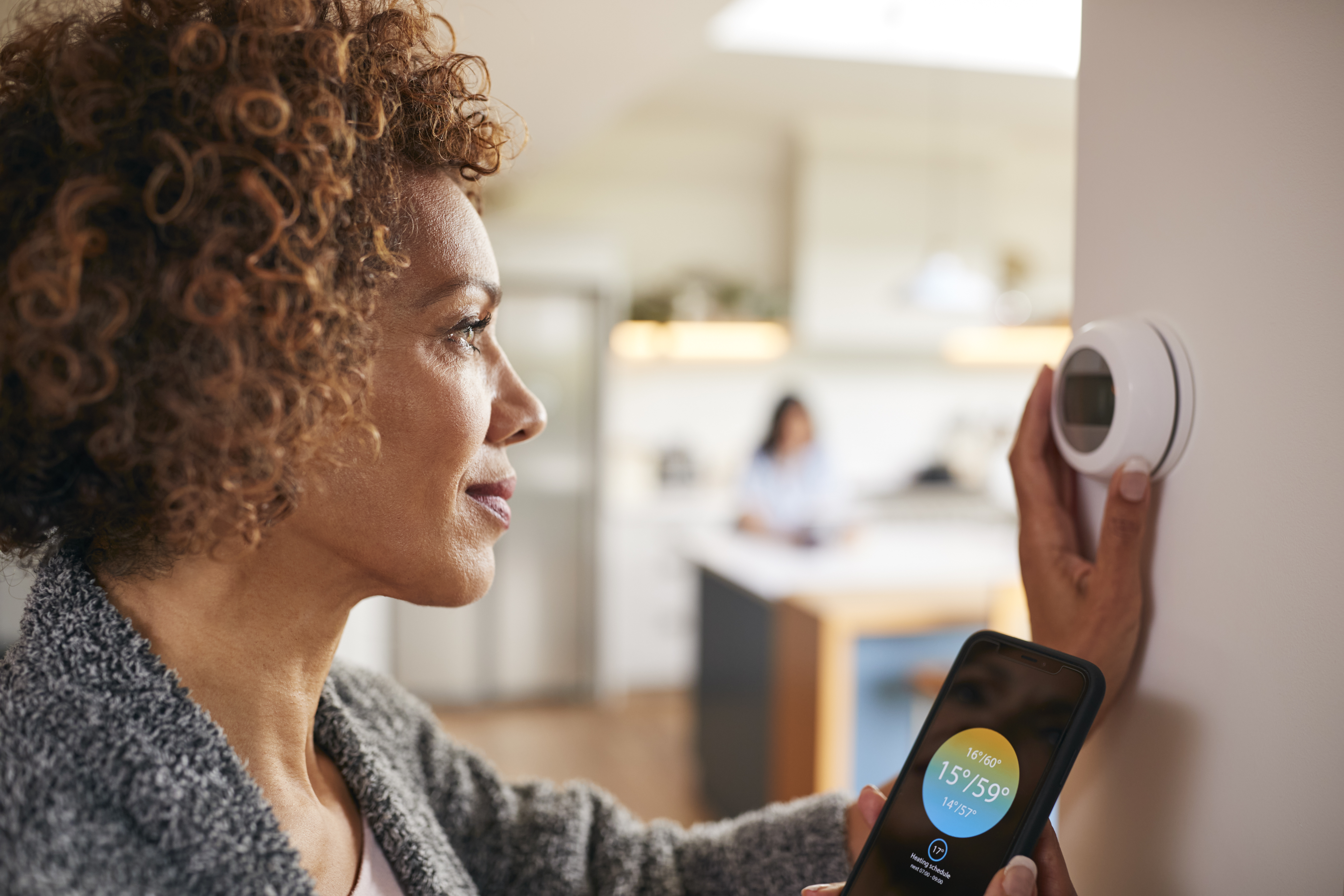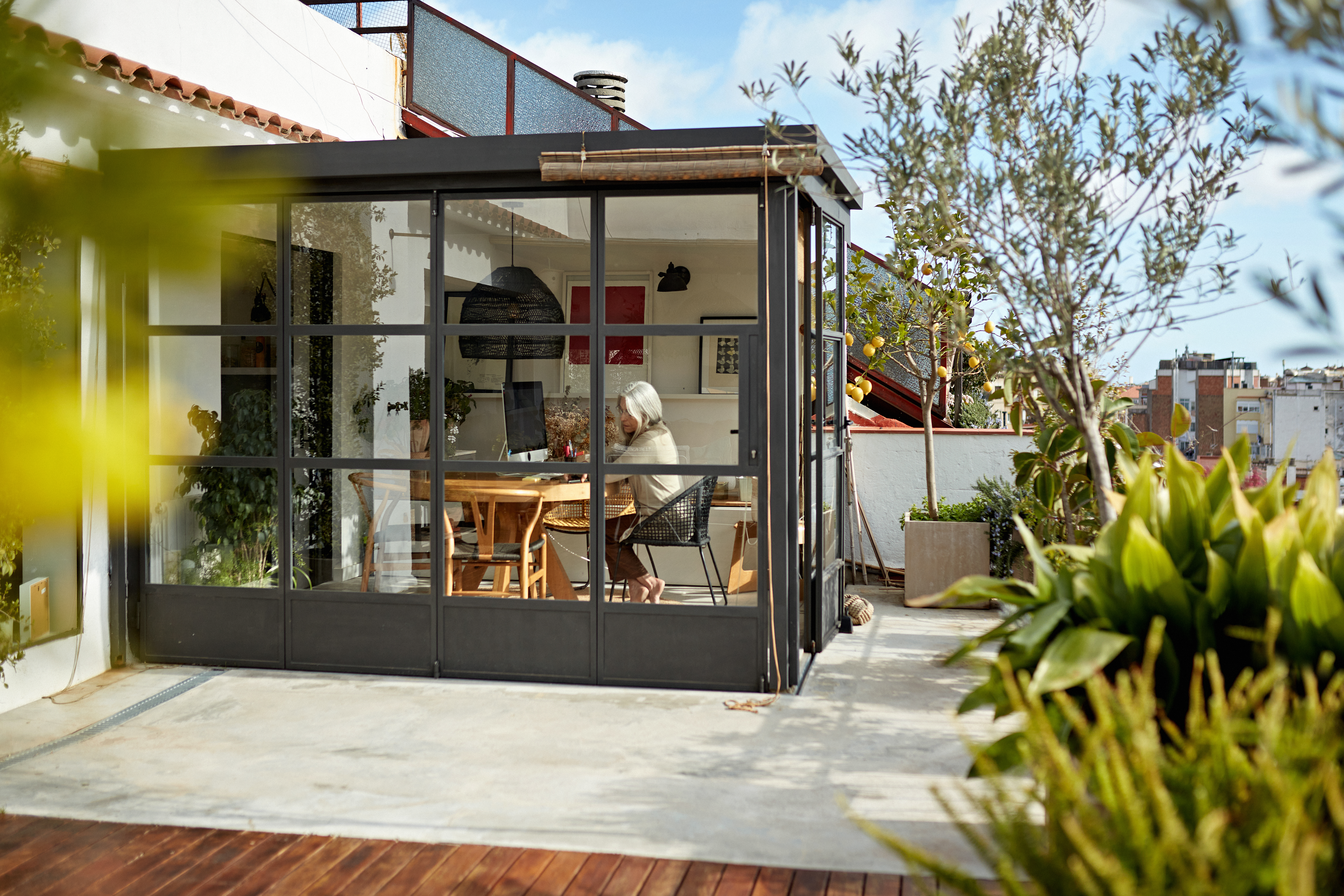12 Advantages & Disadvantages of Solar Energy

If you’ve looked at your energy bill lately and wonder if there is room for improvement, you just have to look toward the sky for a possible solution: the sun. Solar power allows you to harness the sun’s energy and use it in your home. In some cases, you might even be able to fully disconnect from the main electrical grid or at the very least, reduce your dependence on it. Plus, it boasts low maintenance costs over its lifespan.
Installing solar panels is a big decision and investment. But, how do you know if solar is right for you? Understanding the advantages and disadvantages below can help you decide if making the change to solar energy is the best plan of action.
What is Solar Energy?
The sun creates a lot of energy and it takes just about 8 minutes for the sun’s energy to make the multi-million-mile trip to earth. Every hour, the earth gets enough solar energy to power the entire world for a year. Pretty impressive!
Now that you know how much potential energy is coming down to our blue planet, you might wonder how you actually can leverage it for your own home. The answer? Solar panels.
How Do Solar Panels Work?
Solar panels capture the energy from the sun into usable energy for homes, buildings or swimming pools. A solar panel is made up of photovoltaic cells that convert the sunlight’s energy to an electric current to power your home.
Advantages of Solar Energy
Solar energy is one of the best great energy-efficient upgrades, especially if you live in a temperate climate with more sunshine than rain the majority of the year - here’s to you Southern California.
If you are in a temperate climate with plenty of sunshine and are now considering solar, we invite you to discover additional reasons it may be worth the investment.
#1 Reduce Environmental Pollution
Compared to fossil fuels that leave the environment significantly polluted, solar energy is almost 100% clean.
The typical American home generates 14,920 pounds of carbon dioxide each year. However, solar panels can decrease your emissions by more than 3,000 pounds annually. And if you’re worried about noise pollution, you’ve made a good choice with solar panels. Compared to other sources of renewable energy like residential wind turbines, for example, solar panels provide clean, silent energy since there are no moving parts to make noise.
#2 Financial Benefits
Installing solar panels through federal and state incentive programs may save you money. Look into your own state’s incentive program to see what kind of discount you may be eligible for, as some offer tax deductions for up to 30% of installation costs. Improving your home with solar could save you between $10,000 to $30,000 over a twenty-year period, depending on your location, electricity usage, and home size.
Once solar is installed, maintenance is relatively simple, cleaning the panels a few times a year, changing the inverter once every 5-10 years, and occasional maintenance to the cables.
#3 Energy Independence
A solar upgrade to your home can offer independence from traditional energy sources and help insulate you from inevitable rising energy costs.
#4 Ability to Store Energy for Emergency Preparedness
With the ever increasing demands of energy there are cities throughout the country where the grid supporting the power needs is struggling. In areas such as California there can even be “rolling blackout periods” where residents can be without electricity for hours. If you have solar installed then a rolling blackout certainly won’t interfere with your appliances and daily activities.
In addition to benefiting when there are short term power challenges, homeowners that add solar panels could also invest in a home battery solution. Home battery solutions, such as Tesla’s Powerwall or others, are designed to store up solar energy allowing you to keep the lights on for longer periods of time, often 3-5 days, which could help in the event of a more severe disaster.
#5 You Could Save on Your Commute
When you install solar panels you can then consider other areas of your fuel usage where you could enjoy the benefits of saving money monthly. If you are in the market for a new car, having solar panels on your home, can give you the opportunity to go with an electric car. Many people don’t think about the cost of electricity when they purchase an electric car as that can run from $25-$49 a month. While that is substantially cheaper than gas prices it still isn’t free. When you put solar panels on your home you could then charge your car monthly for free realizing true savings.

Disadvantages of Solar Energy
Seems like a win, win right? Well, then why doesn’t everyone have solar? Here are a few disadvantages you should consider before calling up your nearest solar panel company.
#1 Large Price Tag
The upfront price of installing solar panels is fairly high. This can be a deterrent for homeowners who want to benefit from clean energy but don’t want to pass out from sticker shock.
The average national price to install solar panels is $18,000* but your price will vary based on how many panels you install, where you live, and what state or federal financial incentive programs you can be approved for. However, solar panels are a green home energy improvement, so they qualify for alternative financing options, such as PACE financing which allows you to pay at a fixed rate for home projects over a longer period of time.
#2 Less Sun, Less Power
Solar energy can be collected during cloudy and rainy days but efficiency drops during inclement weather and it can’t be harvested during the night. In most areas, your solar power system will be less productive during the winter when there is less sunlight.
#3 Use it Or Lose it
Solar energy has to either be used immediately or stored in batteries. Batteries can be charged during the day so that the energy can be used at night. While it’s a good solution for evening use, it can also rack up your electricity bill. In most situations, it makes more sense to use solar energy during the day rather than store it and use the grid at night.
#4 Space Hog
Solar panels aren’t just a large financial commitment, they’re also a large space commitment as well. The more energy you want the more solar panels you’ll need to install. You’re not likely a good candidate for solar if you live in the city with limited roof space.
#5 Geographic limitations
Solar industry companies are growing but typically, they serve very specific geographic locations. If you live outside the solar companies’ service area, you might have a hard time finding a company that will come out to your home. If you live in a rural area, this is an issue because if something goes wrong, you might have trouble contacting customer service to get it fixed.
#6 You Can’t Take it With You
As you might imagine, you can’t move your solar panel system if you decide to move. You can remove your panels and move them to your new property, but the system would have to be re-fitted to your new house and might cause damage to your old home and panels.
Did the Advantages or Disadvantages of Solar Energy Move You?
Solar energycan power your home sustainably and boasts low maintenance costs after installation. It’s a great way to see a green impact and one that will leave a little more green in your wallet. Contact Ygrene today to get started on your solar journey.
* Prices vary based on location, materials, labor costs, and contractor fees. Ygrene approved contractors can provide customized estimates.




